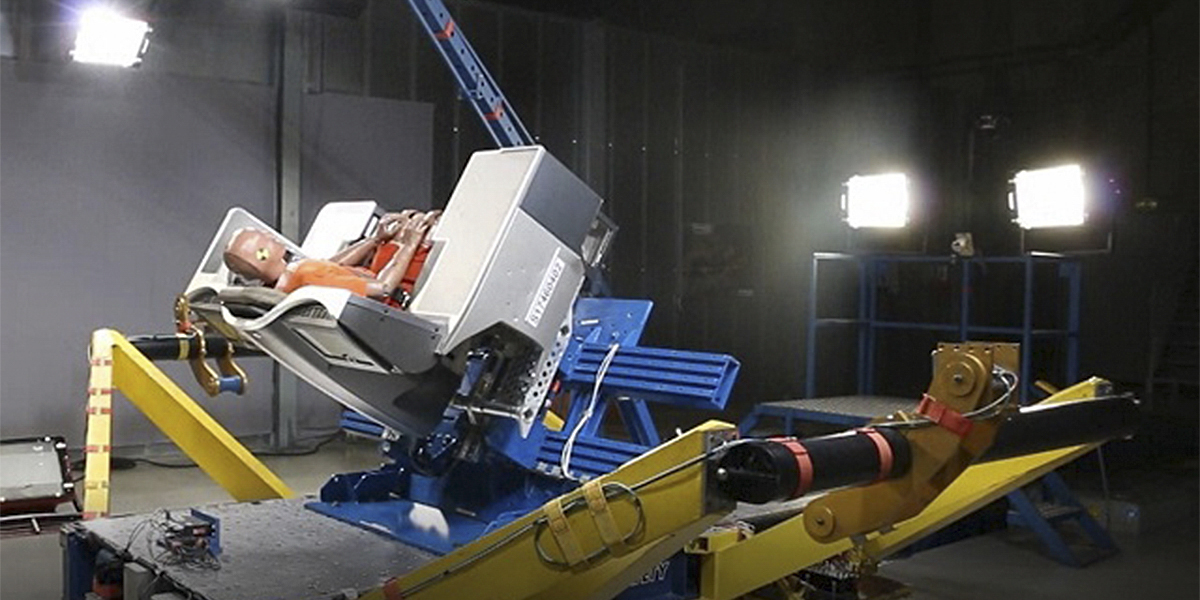FMVSS 208 Airbag Deployment Crash Test
The Federal Motor Vehicle Safety Standard (FMVSS) No. 208 is a critical regulation for automotive manufacturers, ensuring that vehicles meet minimum performance requirements to protect occupants in the event of a crash. One of the most important aspects of this standard is the evaluation of airbag deployment systems through crash testing.
The FMVSS 208 test is designed to simulate real-world collision scenarios to ensure that airbags deploy correctly and safely under various conditions. This stringent test provides manufacturers with valuable insights into how their vehicles perform in accidents, helping them improve passenger safety. The standard applies to all new motor vehicles manufactured for sale in the United States.
The test involves colliding a vehicle equipped with the airbag system against a fixed barrier at high speed. The parameters of these collisions are carefully controlled and standardized to ensure that they accurately represent typical crash conditions encountered by drivers on the road. These tests can be conducted using either sled or rolling car methods, depending on the specific requirements set forth in FMVSS 208.
During the test, various data points are collected from multiple sensors placed throughout the vehicle to assess airbag performance. This includes measuring crash severity indicators like deceleration rates and time-to-collision. Additionally, post-crash evaluations focus on factors such as deployment timing, inflation rate, and force distribution across different areas of the vehicle.
These tests are essential for ensuring that airbags function effectively without causing undue harm to occupants. For instance, deploying an airbag too early could injure passengers before they have enough time to brace themselves properly; conversely, delayed deployment might fail to protect them adequately during impact. By conducting thorough FMVSS 208 crash tests, manufacturers can identify potential issues and make necessary adjustments to enhance overall vehicle safety.
The results from these tests play a crucial role in determining whether vehicles comply with the requirements of FMVSS 208. Compliance is based on specific criteria outlined within the standard, including deployment effectiveness rates and injury risk reductions achieved by airbags under various test conditions. Any non-compliance would require corrective actions such as modifying designs or enhancing manufacturing processes until full compliance is restored.
- Ensure proper functioning of airbag systems
- Identify areas for improvement in vehicle safety performance
- Demonstrate adherence to legal standards set forth by FMVSS 208
- Promote safer driving practices among consumers
Applied Standards
The FMVSS 208 airbag deployment crash test is governed by several key standards that ensure its accuracy and consistency across different manufacturers. These include:
- FMVSS No. 208
- ISO 3875: Road vehicles - Protection of occupants in frontal collisions with rigid barriers
- ASTM F1356: Standard practice for deployment testing of occupant protection systems (airbags)
These standards provide clear guidelines for conducting the test, including specifying the types of equipment needed, the procedures to follow, and the criteria used to determine compliance. Compliance with these standards ensures that all vehicles undergo consistent evaluation processes, allowing consumers to have confidence in their safety features.
Eurolab Advantages
Choosing Eurolab for your FMVSS 208 airbag deployment crash tests offers numerous benefits. Our state-of-the-art facilities and experienced staff provide a comprehensive range of services that ensure accurate, reliable results every time.
- Comprehensive Testing Capabilities: We offer full-service testing solutions covering all aspects of FMVSS 208 compliance, from initial design reviews to final certification.
- Expertise and Experience: Our team consists of highly skilled professionals with extensive knowledge in automotive safety testing. They stay updated on the latest industry trends and regulatory changes to provide you with the best possible support.
- Accurate Results: Using advanced technologies like high-speed cameras, force sensors, and other measurement tools ensures precise data collection and analysis.
- Swift Turnaround Times: We understand that timely completion of tests is crucial for your business. Therefore, we strive to deliver results within the shortest possible timeframe while maintaining quality standards.





